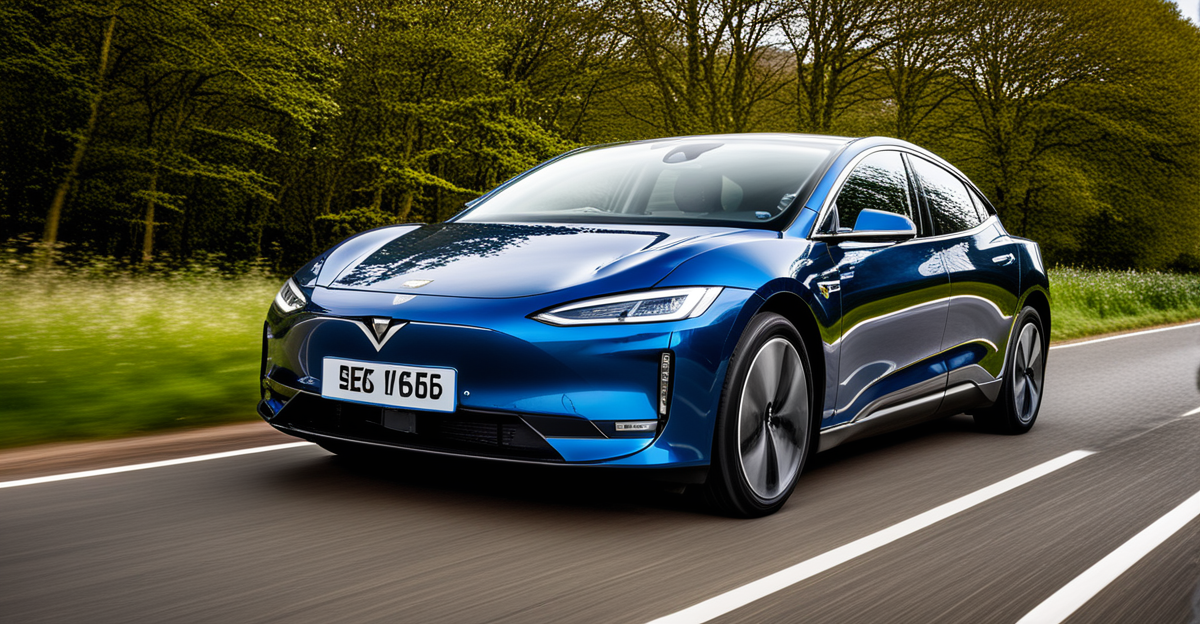Understanding Extended Warranties for Electric Vehicles
When considering an extended warranty for electric vehicles, it’s crucial to understand the variety of EV warranty options and the extent of their coverage. These extended warranties provide additional protection beyond the manufacturer’s warranty, ensuring that major repairs and parts are covered after the initial period expires. Unlike manufacturers’ warranties, which come automatically with a new EV and cover basic components for a limited time, extended warranties offer broader or prolonged protection, often customizable to suit different needs.
A common misconception about electric vehicle warranties is that they cover everything for the entirety of the vehicle’s lifespan. However, extended warranty coverage details often specify particular elements like the powertrain or battery, with exclusions for regular wear and tear, and routine maintenance. By understanding the nuances between standard and extended warranties, EV owners can make educated decisions that align with their usage patterns and financial considerations.
Also to discover : Extend Your Car’s Transmission Life: Essential Tips for UK Drivers to Maximize Performance
Types of Extended Warranties
Understanding the types of extended warranties available for electric vehicles is essential for making informed choices. Different warranties cater to specific needs, ensuring tailored protection.
Comprehensive Warranties
Comprehensive warranties offer the most inclusive coverage, often encompassing numerous components of an electric vehicle. These warranties provide peace of mind by covering a broad range of issues from electrical components to advanced tech systems. Although the scope of protection is wide, always review warranty coverage details to identify any exclusions.
Also to discover : Unleash Your Off-Road Spirit: A Guide to Selecting the Perfect Vehicle for Conquering the UK’s Diverse Landscapes
Powertrain Warranties
Powertrain warranties specifically target the key moving parts of a vehicle such as the engine, transmission, and related components. For electric vehicles, this often includes the motor and related systems. While limited compared to comprehensive options, they are crucial for ensuring that the vehicle runs smoothly, covering critical mechanical failures.
Specialty Warranties
Specialty warranties focus on particular systems or high-tech features. These warranties might include coverage for high-voltage battery packs or onboard electronics. Beneficial for high-tech EVs, these warranties are perfect for owners seeking coverage for specific innovations and upgrades, although certain limitations and exclusions apply.
Choosing the right type of warranty depends on the specific needs and usage patterns of the vehicle owner, ensuring a balanced approach to coverage and value. Always consider the benefits and possible exclusions before making a decision.
Key Features to Consider
When deciding on an extended warranty for electric vehicles, it’s pivotal to understand the essential features which define the value and efficiency of the coverage. Selecting the right warranty involves scrutinizing its key features to ensure adequate protection for your electric vehicle over time.
Duration and Mileage Limitations: Extended warranties come with specific temporal and mileage constraints. These define how long the warranty remains valid and the maximum distance the vehicle can travel before coverage ceases. Understanding these limitations helps align the warranty’s benefits with your driving habits, ensuring you receive coverage for the longest possible period given your vehicle’s usage.
Transfer Options and Resale Value: A crucial feature of some warranties is their transferability. This aspect permits the warranty to be transferred to a new owner if the vehicle is sold, significantly boosting its resale value. Buyers are often reassured by the presence of a transferrable warranty, as it offers them the same security enjoyed by the original owner.
Included Perks: Look for warranties that offer additional benefits such as roadside assistance or vehicle rental coverage. These perks provide extra convenience and security, turning a small mishap into a manageable situation. Roadside assistance, for instance, is particularly beneficial during breakdowns, ensuring your journey can resume with minimal disruption.
In summary, thoroughly analyzing warranty features like duration, transferability, and included perks is crucial for securing optimal protection. This not only shields your investment in an electric vehicle but also enhances its long-term value.
Comparing Extended Warranty Providers
When choosing an EV warranty provider, several factors need to be considered to ensure you receive the best service and coverage. Extended warranties can be a valuable addition to your electric vehicle investment, but selecting the right provider is crucial.
Reputation and Experience of Providers
The reputation of a provider plays a significant role in determining the quality of warranty service. Look for established providers with extensive experience in the industry. These companies are more likely to offer reliable coverage and have the processes in place to handle claims effectively. Providers with a long history and positive track records demonstrate their ability to sustain customer satisfaction over time.
Customer Reviews and Satisfaction
Reading customer reviews can provide valuable insights into the experiences of other electric vehicle owners. Reviews often highlight the strengths and weaknesses of a provider’s warranty service, such as promptness in handling claims and the ease of communication. Pay attention to patterns in feedback to understand how consistently a provider meets customer expectations. Higher satisfaction rates generally indicate a provider that is responsive and customer-focused.
Claim Handling Processes
The way a provider handles warranty claims is a critical aspect of their service. Assess whether the warranty provider has a streamlined and transparent claims process. Look for details on how they manage disputes and the average time it takes to process a claim. Quick and efficient claim handling ensures that you won’t face prolonged inconveniences during vehicle repairs.
To thoroughly evaluate EV warranty providers, it’s essential to research their reputation, customer satisfaction, and claim handling practices. This due diligence will help you identify the most trustworthy and effective options for protecting your electric vehicle over the long term.
Cost Analysis of Extended Warranties
Investing in an extended warranty for electric vehicles involves careful consideration of costs, ensuring that the financial outlay aligns with the protection and peace of mind it offers. Understanding the diversity in EV warranty costs is crucial for making budget-friendly decisions.
The average cost of extended warranties varies significantly based on factors like the type of coverage you choose and the model of your electric vehicle. For instance, comprehensive EV coverage tends to be more expensive due to its inclusivity, whereas more specific warranties, like powertrain coverage, might be priced lower. Hidden costs and upfront fees are important to recognize. These could include deductibles per repair or additional fees for coverage upgrades. Always scrutinize these details to avoid unexpected financial burdens.
Factors influencing warranty pricing range from the brand and model of your EV to the level of risk the warranty provider assumes. Vehicles with high-tech features might have higher warranty costs due to the advanced, often costly, repairs needed. Additionally, your driving habits and the typical wear on your vehicle play a role in determining the premium. Regularly commuting long distances could lead to higher pricing compared to city driving.
It is essential to compare the warranty price across various providers, taking into account both the initial premium and potential additional costs. This helps in ensuring you get the best value and effectively shield your investment without overspending. Keep an eye on promotions and offers from reputable providers to optimize your budget planning for warranties.
Evaluating Your Suitability for an Extended Warranty
Determining the appropriateness of an extended warranty for electric vehicles involves assessing specific factors unique to each EV owner. By understanding these elements, you can strategically decide if an extended warranty aligns with your needs and offers value.
Driving Habits and Usage Patterns
Your driving habits significantly impact the perceived value of an extended warranty. Those who frequently travel long distances or have higher annual mileage might benefit more from additional protection. Similarly, if your usage patterns include harsh driving conditions, an extended warranty could offset unexpected repair costs. In contrast, if your use is relatively light, with short, infrequent drives, the warranty might not be as crucial.
Evaluating Your EV’s Reliability
Before opting for an extended warranty, assess your electric vehicle’s reliability. Research studies and consumer reports can provide insights into your model’s common issues or longevity. Vehicles with fewer reported problems might lessen the need for extended coverage, whereas models with known concerns may make a warranty a wise investment.
Personal Budget and Financial Flexibility
Financial considerations are paramount when evaluating the necessity of warranty coverage. Review your personal budget to determine if you can comfortably afford unexpected repair costs. If your budget is tight, an extended warranty might offer peace of mind by providing a predictable cost. Conversely, if you have financial flexibility, you might prefer addressing repairs independently as they arise.
By thoroughly examining driving habits, vehicle reliability, and financial circumstances, you can make an informed decision on whether an extended warranty suits your situation. Balancing these considerations will help ensure your choice supports your long-term vehicle ownership goals.
Addressing Common Concerns and FAQs
Extended warranties for electric vehicles bring several common concerns and questions. Understanding the intricacies can help negate anxieties and ensure informed decisions.
Are extended warranties necessary for all electric vehicles? Not always. The need depends on your vehicle’s reliability and your driving habits. High-mileage driving or vehicles prone to issues may benefit from added coverage.
Will extended warranties cover everything? A common misconception is that warranties provide blanket coverage. However, many exclude wear and tear or routine maintenance. It’s vital to read warranty coverage details carefully.
Specific EV warranty concerns include battery coverage. While manufacturer warranties often cover batteries for several years, extended warranties might not cover them fully. Always clarify this with the provider.
Real-world issues often arise from misunderstandings regarding claim processes. Ensure the claims process is straightforward and that you know the steps to take in the event of a breakdown. EV owner FAQs often highlight the importance of knowing claim turnaround times and potential out-of-pocket costs during repairs.
By addressing these concerns through thorough research and direct inquiries with providers, you can mitigate confusion and enhance the protection of your electric vehicle investment.
Best Practices for Securing an EV Protection Plan
When securing an EV protection plan, adopting best practices is vital to ensure you obtain a comprehensive and cost-effective solution. Following these steps will help you navigate the nuances of EV warranty best practices effectively.
Research and Gather Information
Conduct meticulous research to understand different EV warranty options available. Begin by identifying various providers’ offerings, focusing on key warranty coverage details. Ensuring you are well-informed about the extended warranty electric vehicles market provides a solid foundation for decision-making. Look for insights on specific coverage elements, like battery protection and tech features, to ensure the warranty matches your vehicle’s unique needs.
Compare and Contrast Details
Thoroughly compare the specifics of each protection plan. Pay close attention to the scope of comprehensive EV coverage, as this often varies between providers. Scrutinize powertrain warranty differences, focusing on the range of components covered versus excluded items. Craft a side-by-side comparison of warranty features to assess which plan offers the most value. This approach allows you to pinpoint which provider aligns seamlessly with your requirements.
Negotiating Terms and Conditions
Being strategic when negotiating the terms of your warranty can lead to beneficial outcomes. Clarify and, if possible, adjust the duration, mileage limitations, and transferability options. These adjustments can significantly affect the warranty’s long-term value. Explore the inclusion of perks like roadside assistance, which can offer added peace of mind. Do not hesitate to request hidden fees be removed or reduced to maximize financial benefits.
Adhering to these best practices will empower you to secure an EV protection plan that offers robust coverage, aligns with your budget, and enhances the long-term security of your electric vehicle.









